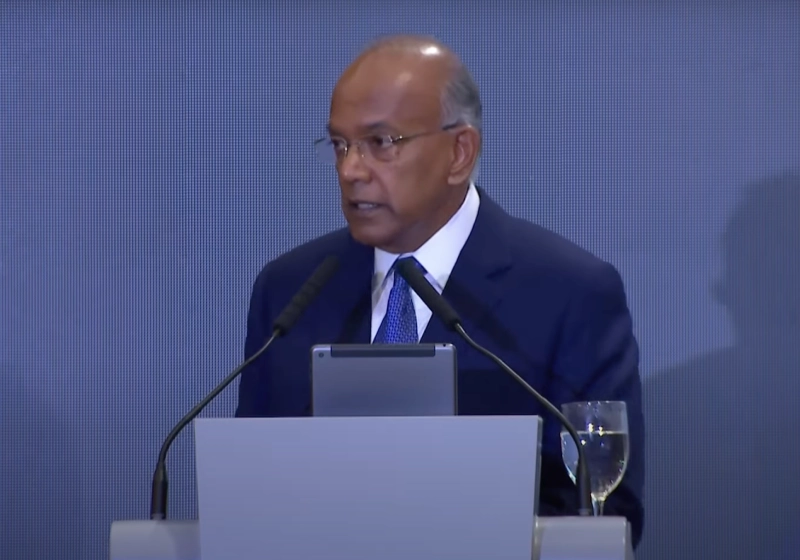
In a rare and urgent late-night address, a senior Singapore official confirmed that the country is currently facing a sophisticated and ongoing cyberattack targeting its critical infrastructure. The attack is attributed to UNC3886, a suspected China-nexus advanced persistent threat (APT) actor previously associated with espionage campaigns targeting U.S. and Asian defense and tech sectors.
Coordinating Minister for National Security, K Shanmugam, called the threat “serious and ongoing,” warning that UNC3886 is actively attempting to compromise Singapore’s power, telecommunications, water, and transportation systems.
“UNC3886 poses a serious threat to us and has the potential to undermine our national security,” the official said. “Even as we speak, UNC3886 is attacking our critical infrastructure right now.” – K Shanmugam
Who Is UNC3886
UNC3886 is a highly advanced, state-sponsored cyber espionage group, strongly suspected to be linked to China. A defining characteristic of UNC3886 is their exceptional ability to discover and exploit zero-day vulnerabilities in network devices and virtualization software. According to multiple threat intelligence reports, the group is also known for using living-off-the-land techniques, and operating in air-gapped or segmented environments to maintain undetected access.
Also read: Researchers Deep Dive into UNC3886 Actors’ Cyberespionage Realm
Their operational methods are marked by extreme sophistication and evasiveness. UNC3886 employs a diverse toolkit including custom malware (like VIRTUALSHINE and TINYSHELL-based backdoors), publicly available rootkits, and intricate techniques to disable logging and remove traces of their activity. They prioritize maintaining long-term, stealthy access to compromised systems, often through multiple layers of persistence and by abusing legitimate credentials obtained via methods like SSH backdoors or targeting authentication servers.
First identified by Mandiant in 2022, UNC3886 has demonstrated a unique capability to compromise high-value targets by exploiting vulnerabilities in widely used products from vendors such as VMware, Fortinet, and Juniper Networks. Their focus on zero-day exploits, coupled with their highly covert and persistent operational style, positions them as one of the most dangerous and challenging cyber adversaries currently operating on the global stage.
Targeting the Lifelines of the State
Specifics of the current attack were not disclosed due to “national security concerns” but the Shanmugam said the targets include high-value national assets.
“The intent of this threat actor is quite clear—it is going after high-value strategic targets: vital infrastructure that delivers essential services.” – K Shanmugam
The gravity of such intrusions is not hypothetical. A successful breach into Singapore’s energy grid, for instance, could cascade into failures across healthcare, water, and transport systems. “Our economy can be substantially impacted,” Shanmugam warned. “Banks, airports, industries would not be able to operate.”
Prepared but Realistic
Singapore’s Cyber Security Agency (CSA), in coordination with other national agencies and Critical Information Infrastructure (CII) owners, is actively mitigating the ongoing threat. The speaker reiterated that the country has robust incident response plans but tempered expectations given the sophistication of state-sponsored attackers.
“We are up against very sophisticated actors, some backed by countries with vast resources—unlimited almost—in manpower and technology,” Shanmugam said. “Even countries at the frontier of technology have not been able to prevent APT attacks on their systems.”
Trust and Reputation at Stake
Perhaps the most sobering part of the address was a clear recognition of what’s at stake: trust.
“Trust and confidence in Singapore as a whole can be affected,” the official said. “Businesses may shy away if they are unsure about our systems—whether they are clean, resilient, and safe.”
Singapore has long prided itself as a global business hub. But in a landscape where cyber resilience is becoming a key metric of economic stability, its digital infrastructure is now squarely part of its national brand.
The situation remains fluid. Authorities have promised to reassess whether more details can be released publicly. In the meantime, Singapore is rallying its resources and international partners to keep systems secure.
The message is clear: the island nation is under digital siege—but it is not standing still.
Source: Read More


